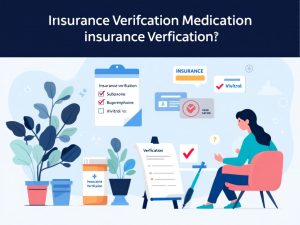Recognizing the need
If you or a loved one is navigating the criminal justice system, you may feel uncertain about the path ahead. This is where justice involved support programs become crucial. These initiatives are designed to help you access the behavioral health services, psychiatric care, and substance-use treatment you need, even if you have legal obligations to fulfill. The goal is to establish a stable foundation for your recovery and reduce the likelihood of returning to an environment where unhealthy habits might flourish.
Many individuals in the justice system face significant barriers to treatment, and that struggle can be overwhelming. Studies have shown that 37% of people in state and federal prisons live with a mental illness, and 63% have a substance use disorder, yet they often do not receive the therapy or care they need (SAMHSA). By ensuring you have access to supportive programs during or after incarceration, you can begin rebuilding your life with a sense of purpose and direction. This is a shift away from punitive measures and toward a more constructive approach, one focused on your overall well-being.
Exploring justice involved support programs
Justice involved support programs serve as bridges between the criminal justice system and community-based services. By blending legal oversight with treatment resources, they offer you an opportunity to address the underlying causes of substance abuse, mental health struggles, or other issues that have led you or your loved one into the system.
Defining the concept
In essence, these programs focus on providing a comprehensive toolkit for reintegration. Instead of leaving you to navigate your release on your own, they link you with therapists, counselors, social workers, and medical professionals who understand the unique pressures of returning to daily life after time in a structured environment. Some jurisdictions may even coordinate with local organizations to ensure consistent follow-up after the initial treatment phase. This continuity of care is vital for sustaining long-term progress.
Why they matter
When you are equipped with resources that address both the clinical and environmental factors influencing your recovery, you have a greater chance of avoiding relapse or recidivism. According to the Bureau of Justice Assistance, programs that combine evidence-based treatments with legal supervision help justice-involved individuals resume productive lives in society (BJA Office of Justice Programs). Your journey toward a healthier future becomes more attainable when mental health treatment, substance-use care, and skill-building initiatives are integrated into your recovery plan. This approach allows you to develop effective, lifelong coping strategies.
Highlighting essential resources
Several initiatives, government agencies, and nonprofit organizations focus on rehabilitative efforts for those who have been incarcerated. These projects emphasize support that extends from the beginning of a sentence to well beyond release, so you can transition smoothly into the community.
Second Chance Act and beyond
Originally passed in 2008, the Second Chance Act invests in comprehensive reentry strategies for individuals leaving prisons, jails, or juvenile facilities. More than $600 million has been allocated by the Bureau of Justice Assistance to fund a variety of programs that tackle educational, vocational, and behavioral health needs. According to a 2024 BJA-sponsored report, state-level reincarceration rates have decreased since the Second Chance Act took effect. In 2019, only 27% of people exiting prison were reincarcerated within three years, compared to 35% in 2008 (Office of Justice Programs).
Such improvements highlight the power of combining mental health counseling, substance-use treatment, and social support networks. By engaging with these resources, you can better navigate the hurdles that come with reentry, including challenges related to stable housing, family reunification, and job placement.
Community-based programs
Beyond large-scale government initiatives, community-based reentry programs offer hands-on assistance and localized knowledge of the hurdles you might face. For example, some nonprofits focus specifically on mental health improvement, while others tackle post-incarceration employment training. In either case, the aim is to ensure that an existing network of experts in fields such as counseling, crisis management, and housing support can guide you every step of the way.
Additionally, these programs often collaborate with courts, law enforcement, and other local governing bodies to make sure your individualized care plan aligns with any legal requirements, such as court-mandated behavioral therapies. If you are coping with substance use, you might be directed to resources like opioid addiction treatment or court mandated dui classes. Tailoring the approach to your specific history and struggles helps address core problems rather than focusing solely on punishment.
Benefiting from integrated care
One of the central philosophies behind justice involved support programs is integrating behavioral health, psychiatric, and substance-use services. This holistic view acknowledges that mental health and substance use rarely exist in a vacuum. You may have encountered personal or environmental factors that compounded your challenges, making rehabilitation more complex. By delivering wraparound care, programs remove some of the roadblocks you might face during reentry.
Overcoming stigma
Justice-involved individuals often battle stigma in multiple areas, from difficulty finding equitable employment to challenges securing housing. For this reason, programs that frame reentry as a time of growth, rather than punishment, can have a profound impact. Empathy, understanding, and comprehensive support blend to create a judgment-free space where you can focus on themost pressing needs: your health and well-being.
Positive treatment outcomes require feeling safe and respected, and integrated care programs generally place a strong emphasis on building trust. They strive to show you that your experiences and emotions matter. Whether you are dealing with mental health concerns, addiction, or the legal ramifications of your past, a supportive environment can help you rediscover your strengths and foster resilience.
Skill-building and personal growth
Many justice involved support programs also offer vocational training, educational services, and life-skills coaching to help you rebuild a healthy life. For instance, the Federal Prison Industries (FPI) initiative has shown that individuals who worked in prison industries were 24% less likely to recidivate and 14% more likely to be employed after release (US Department of Justice). Developing skills you can use in daily life or in the workforce helps you achieve stability and self-sufficiency. This outlook emphasizes that fewer barriers to employed, healthy living means fewer risks for relapse or involvement with the criminal justice system again.
Understanding outpatient mental health
While residential or intensive inpatient programs might be necessary for some circumstances, outpatient care can be equally transformative, especially if you need to meet specific legal requirements or juggle responsibilities like family or work. Outpatient mental health programs often include counseling, therapy sessions, and support groups. They also facilitate ongoing evaluations so you can monitor your progress and maintain accountability.
Benefits of outpatient services
-
Flexibility: You can attend therapy sessions or counseling appointments around your schedule, making it easier to balance personal commitments with your treatment needs.
-
Community reintegration: Outpatient care allows you to live at home while receiving professional guidance. This approach helps you remain connected to your friends, family, or sober support network, which can be vital for long-term success.
-
Cost-effectiveness: Compared to residential care, outpatient services are often more affordable, making them more accessible. If you plan to continue working or going to school, you may also minimize financial disruptions.
-
Consistency: With outpatient services, you can maintain consistent contact with a support team and receive help over a longer period. This continuity of care is crucial for monitoring any ups and downs in your mental health.
If you or your family member is navigating life after incarceration, an outpatient program that tailors its approach to justice-involved individuals can be invaluable. You might also benefit from a variety of supplemental interventions, such as trauma informed addiction therapy if you have experienced traumatic events, or group programs that focus on skill-building and peer support.
Addressing substance use disorders
When you have experienced legal complications associated with substance misuse, the challenges can feel especially complex. Not only are you working to overcome addiction, but you may also have court mandates and supervision that add pressure to your situation. With that in mind, programs that integrate addiction treatment, mental health counseling, and reentry support can help you address all dimensions of your situation.
A path to recovery
Interwoven with your treatment plan, evidence-based therapies such as motivational interviewing, individual counseling, and group therapy can help you understand the root causes of your substance use. Many justice involved support programs collaborate with medical professionals trained in addiction medicine, offering you or your loved one a range of services that could include:
- Medication-Assisted Treatment (MAT) for opioid or alcohol use disorders.
- CBT for addiction to identify unhelpful thought patterns.
- DBT for addiction to manage high-risk emotional triggers.
- Family therapy addiction to strengthen relationships within your support network.
Involvement in these comprehensive programs can reduce your sense of isolation and foster a sense of accountability to both yourself and your community. If you require specialized care for painkillers or other medications, the approach might include prescription opioid treatment. If you have overlapping dependencies, you may find integrated support services that address multiple types of addiction, including heroin addiction treatment and fentanyl addiction treatment.
Building on holistic care
In addition to standard therapeutic methods, many programs encourage you to try holistic approaches aimed at restoring emotional balance and overall well-being. These could include mindfulness techniques, meditation exercises, and experiential therapies like art or music therapy. You might also explore complementary services like nutrition support addiction, allowing you to rebuild healthy sleeping and eating patterns.
As you undergo treatment, you’ll likely discover that addiction rarely exists in isolation. External stressors, social influences, and previous life experiences can feed into damaging cycles. An approach that respects each of these influences ultimately paves the way for deeper, lasting wellness. Your progress is measured not only in how well you adhere to a court order, but also in how you cultivate a life free from destructive patterns.
Choosing Epic Health Partners
For evidence-based, comprehensive outpatient treatment options, Epic Health Partners stands out by providing you with a supportive environment that addresses the unique challenges of justice involvement. The focus is not merely on immediate symptom relief but on delivering enduring solutions. The entire team acknowledges the complexity of your situation, offering a mix of psychiatric, behavioral, and holistic care in a way that builds on your strengths.
Tailored to your needs
At Epic Health Partners, you will find that each treatment plan considers your personal background, clinical assessment, substance-use history, and any co-occurring disorders. Whether you need routine therapy sessions, medication management, or specialized non punitive outpatient care, you can collaborate with skilled professionals who prioritize your well-being. This individualized approach extends to practical supports like case management appointments, scheduling flexibility for work or family needs, and consistent monitoring of your progress.
Clients who face the pressures of criminal justice requirements can also receive guidance on meeting their legal obligations. For instance, if you must comply with certain conditions, such as mandated classes or therapy attendance, the administrative team at Epic Health Partners works with you to uphold those obligations with the least amount of additional stress.
Emphasis on skill-building
Justice-involved roles often require you to rethink aspects of daily life. If you have been incarcerated, adapting to everyday responsibilities may feel overwhelming. Epic Health Partners offers a safe place to begin that readjustment process, giving you the support necessary for lasting recovery. You can participate in life skills training addiction or busier group programs to sharpen coping strategies, communication skills, and conflict resolution techniques.
Like many other justice involved support programs, Epic Health Partners also recognizes the value of addressing possible triggers. A structured approach to identifying and managing stressors helps ensure that your return to community life is successful. By collaborating with dedicated counselors and case managers, you gain insight into how to continue the progress you made in treatment even after your formal obligations to the justice system conclude.
Our commitment to you
What sets Epic Health Partners apart is an unwavering dedication to your empowerment. While the criminal justice system itself may seem impersonal, the care team emphasizes a genuinely empathetic environment where your voice and experiences matter. From the moment you step into the program, you can expect transparent conversations about your goals. This collaborative stance ensures you never feel like just another number—it recognizes that your story is unique, and your potential for growth is tremendous.
Frequently asked questions
-
How do justice involved support programs work?
Justice involved support programs are collaborative efforts between the criminal justice system and community-based services. They focus on addressing mental health, substance use, and other behavioral issues through therapy, counseling, and consistent support. You remain accountable to any legal requirements, but instead of engaging purely with punitive steps, your journey includes evidence-based treatments that allow you to rebuild and maintain healthier lifestyle patterns. -
Do I have to be recently incarcerated to benefit from these programs?
No. While many participants enter justice involved support programs shortly after incarceration, you can also qualify if you are on probation, parole, or facing charges. The purpose is to ensure you get the help you need, regardless of where you are in the legal process. Each program may have specific eligibility criteria, but the guiding principle remains to provide comprehensive care and promote effective reintegration. -
What types of treatment can I expect at Epic Health Partners?
Epic Health Partners offers a range of outpatient services, including therapy sessions, psychiatric evaluations, medication management, and specialized addiction treatment for substances like opioids, stimulants, or alcohol. The center also provides holistic approaches such as mindfulness techniques, group therapy, and skill-development activities. Together, these resources help address the root causes of addiction and mental health challenges, enabling you to pursue long-term wellness. -
Can these programs help me if I have a co-occurring mental health disorder?
Definitely. Many individuals involved with the justice system face co-occurring conditions, such as anxiety or depression existing alongside substance use disorders. At Epic Health Partners, and in other similar initiatives, staff members receive training to handle both simultaneously. By treating multiple conditions, you gain a stronger foundation for recovery, as your emotional health and substance use behaviors are addressed holistically. -
How can justice involved support programs lower recidivism rates?
Research shows that when people have stable housing, job skills, emotional support, and continued substance-use treatment after leaving jail or prison, they are much less likely to reoffend. By combining these elements, justice involved support programs address core reasons behind criminal behavior. Instead of merely punishing wrongdoing, programs emphasize your potential to contribute meaningfully to society and break the cycle of recidivism.
Conclusion
Embarking on the path to recovery and reintegration is rarely simple, but specialized services can drastically reduce the stress you might feel along the way. Justice involved support programs offer a meaningful bridge between legal obligations and well-rounded medical and behavioral care, so you are equipped to manage each step confidently. Through collaborative, empathy-driven models, these programs champion a holistic approach, recognizing that true recovery calls for more than simply meeting court requirements—it involves addressing every dimension of your life.
At Epic Health Partners, you can expect a team committed to helping you confront the issues underlying your behavioral health and substance-use challenges. The staff understands that your experiences within the justice system might be complicated, discouraging, or even traumatic. Because of this, the programs here provide continuity of care, from counseling and medication management to skill-building workshops, giving you a stable basis for lasting change.
By embracing a supportive environment that focuses on wellness and long-term success, you give yourself or your loved one the best chance to move toward a hope-filled future. Whether you are looking for structured therapy sessions, specialized substance-use treatment, or broader holistic support, Epic Health Partners aims to guide you in building a healthier life beyond legal mandates. The journey may not be easy, but with the right resources and compassionate support, it can be profoundly transformative.







